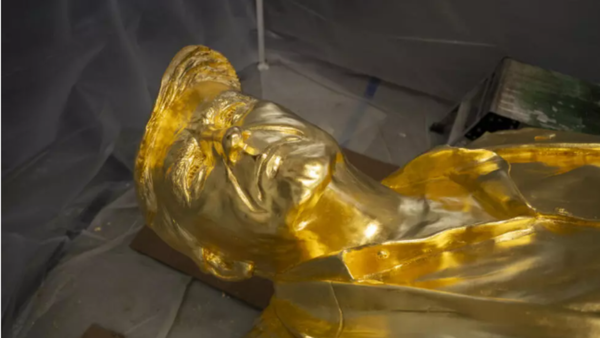Whoever thought conversation could be bottled, packaged like perfume and sold to those who want to capture a sense, a feeling, an idea. Rewind. Start over. Whoever thought a conversation could be boxed, and when opened, could lead one into new worlds of knowledge and imagination. Whoever thought conversation could become a commodity?
The podcasting business thrives on conversation — short takes, mid-sized, and long, unfurling like the mythical tail of Hanuman. These must be distinguished from interviews, which have a discrete and specific purpose, with a clear boundary between seeker and giver of information and insight. Journalistic interviews may serve the purposes of extracting or confirming the news of the day, or as a platform for portraiture, where we watch, listen or read someone drawing out personality. But the conversational podcast does something different; it invites the listener into a closed room to hear the wheels of two minds as they turn.
The best conversational podcasts are those where there the host and the guest meet on a level platform — not so much in terms of domain expertise, but as two (or more) people who share a curiosity that is jointly explored as they speak. There is a genuine sense of listening to questions and carefully crafted answers that in turn generate more questions, both for those within the conversation and those listening to it. Even as the exchange is being recorded, the participants do not seem to be performing. They are so deeply involved in the interchange that the sense of an audience is completely absent.
There are any number of such podcasts, each of which gains its flavour from the style of the host and the scope that they set out.
All women
One that I discovered a few weeks ago was The Indian Edit, hosted by Nitasha Manchanda, that features conversations with “innovators in design, culture and entrepreneurship”. Manchanda’s guests are all women with a connection, as she says, to the Indian subcontinent. These are not women you would have encountered unless you have a special interest in the fields they represent — perfumery, craft design, children’s publishing, community media, cuisine, among others — but each has a story to tell and a perspective to share. Manchanda notes on her website that as a podcast listener, she rarely came across shows about the kind of people she wanted to hear from, or hear about. In the three years or so that the show has run, she has sampled a wide range of creators and risk-takers, each of whom introduces you to the window of opportunity that they pushed open for themselves. Some conversations do move into the rarefied reaches of high-end fashion and haute cuisine, but overall, there’s something there for those who find themselves stuck, at any stage in life.
Go with the flow
You can sample the episodes in any order, but one I would recommend features Sarah Thomas, founder of Kalamata’s Kitchen, an enterprise that aims to make adventurous and compassionate eaters of children, as also the episode where guest Aarti Jaiman of community radio Gurgaon ki Awaaz details her journey.
The conversational podcast is perhaps the simplest kind to record and package; it calls for fairly basic production and sound design skills. But it is not easy to sustain, and those who have managed to run a show for any length of time deserve appreciation. And, like Manchanda, if they’ve managed to package it with character, even more so.
Usha Raman, Hyderabad-based writer and academic, is a neatnik fighting a losing battle with the clutter in her head.







